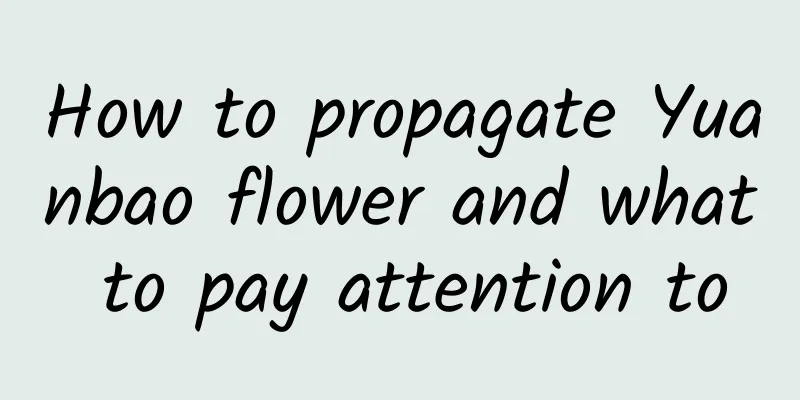How to grow wind chimes well

Wind chime growing conditionsCampanula likes a warm and humid growing environment, likes an environment with plenty of sunlight, and is also tolerant to partial shade. It is afraid of direct sunlight and is suitable for planting in sandy soil that is rich in humus, loose and breathable. It is not tolerant to waterlogging. How to care for wind chimesTo grow wind chimes, you need to provide a humid environment, water frequently to maintain the humidity of the environment, apply appropriate amounts of calcium and nitrogen fertilizers, and then apply phosphorus and potassium fertilizers. Provide sufficient light. The daily sunshine time needs to be more than 14 hours, and potted plants cannot be placed in the shade for a long time. Wind chime wateringWind chimes do not have very high requirements for water. When growing seedlings, it is enough to maintain a slightly moist soil environment. Also, be careful to avoid water accumulation, and a water-deficient environment will also cause it to grow poorly. Fertilizing Wind ChimesWind chimes do not require much fertilizer, only a little fertilizer is needed. For example, it is best to fertilize once a month, mainly nitrogen fertilizer and potassium fertilizer, and the concentration should not be too high. Wind chime pest controlWind chimes are prone to diseases and pests in conditions of poor ventilation and excessive humidity. If leaf spot disease or sooty mold is found, use methyl thiophanate wettable powder for control. If aphids or red spiders are found, use dimethoate and dacarbazone for control. How to grow wind chimes at homeWind chimes like the sun. For indoor maintenance, they can be placed on a sunny balcony and provided with sufficient light. Water them according to the dryness and wetness of the soil. Water them thoroughly when the soil is dry. During the growth period of the plant, apply compound fertilizer every half a month, and use phosphorus and potassium fertilizers before flowering. During the growth and development of the campanula, cut off the aging and dry leaves at the bottom of the plant at any time, trim the remaining flowers in time after the plant has bloomed, and cut off all the branches after all the flowers on the branches have bloomed and faded. Ventilate the plant more often to prevent the occurrence of diseases and pests. Wind chime maintenance precautionsWind chimes will only bloom after experiencing a severe cold winter, so maintenance requires patience. In summer, shade measures should be taken, and water should be sprayed in time to keep it moist, and cooling measures should be taken. It is a sun-loving plant and cannot be kept in a dark place. Lack of light is not conducive to flowering. |
<<: Can I water the Euphorbia paniculata when it is blooming?
>>: How to maintain the succulent plants for Halloween
Recommend
Fruit tree spraying time
1. Before flowering Before the fruit trees bloom,...
Cultivation methods and precautions of money bag flower
The money plant is also called the round-leaved p...
Where do spinach seeds come from?
Where do spinach seeds come from? Spinach seeds e...
Why do leaves turn yellow and fall off in June?
The June snow is named for its white flowers that...
How to grow and care for freesia?
Freesia is very common in my country and is a ver...
What is Aloe Vera
1. Species It is an evergreen, succulent herb of ...
How to grow lucky bamboo so that it can grow roots more vigorously in water?
Lucky bamboo is a very suitable plant for hydropo...
How many years does it take for camellia seedlings to bloom? How to grow camellia seedlings
1. How many years does it take for a seedling to ...
What is the best season to plant cherry tomatoes?
What month is suitable for planting cherry tomato...
How to Identify Velvet Arrowroot
1. Blades The leaves of velvet arrowroot are 6-20...
When is the right time to repot orchids?
Orchid repotting time Generally, newly bought orc...
What are the flowers of the perfect flower?
1. Definition of a perfect flower According to th...
What flowers are suitable for growing in Leshan? What are the city flowers and trees?
1. Climate characteristics of Leshan Leshan has a...
How to save broad bean seeds
Broad bean seeds introduction Broad beans have se...
The language and legend of Crape Myrtle
The Flower Language of Crape Myrtle The flower la...









